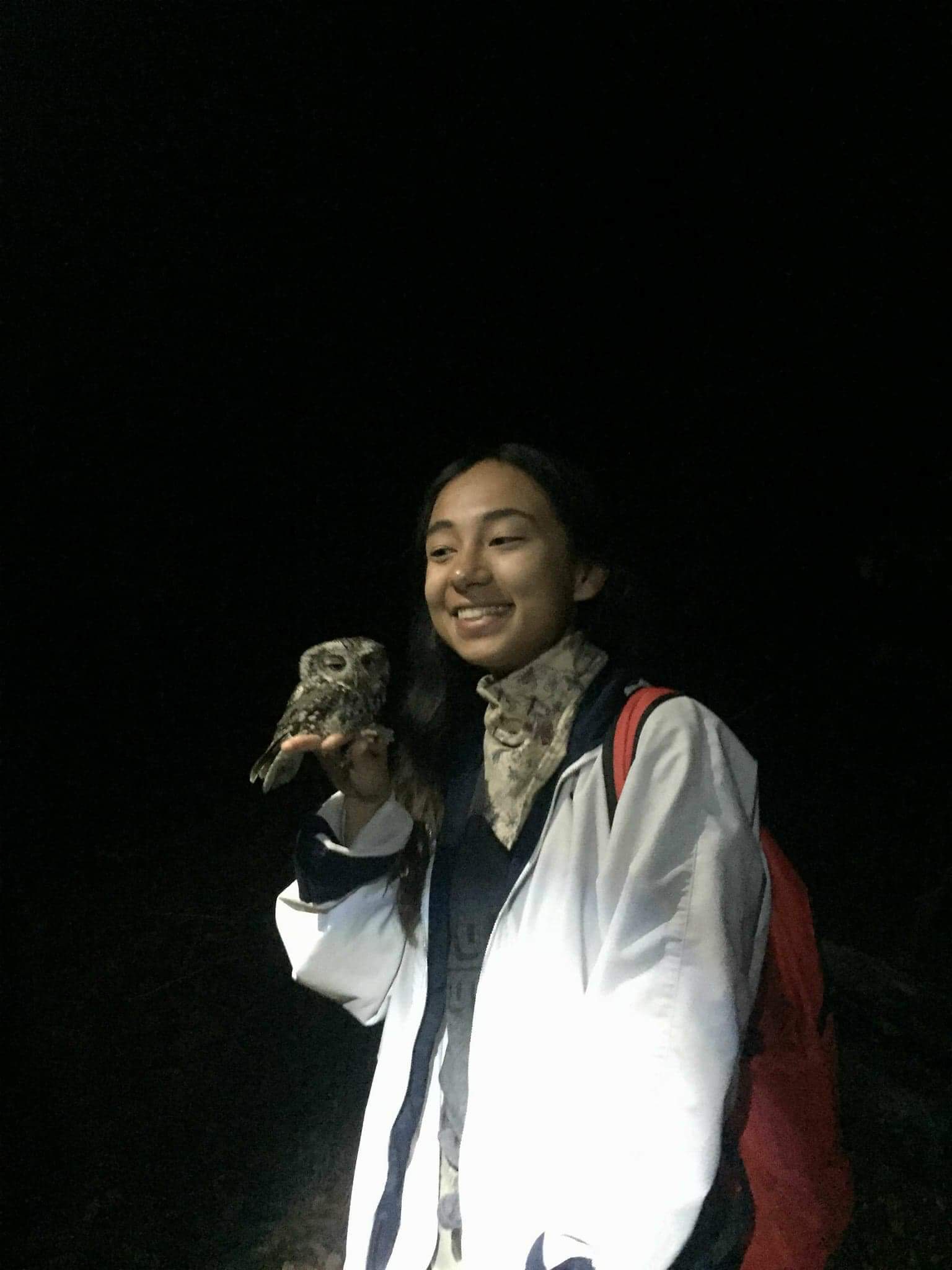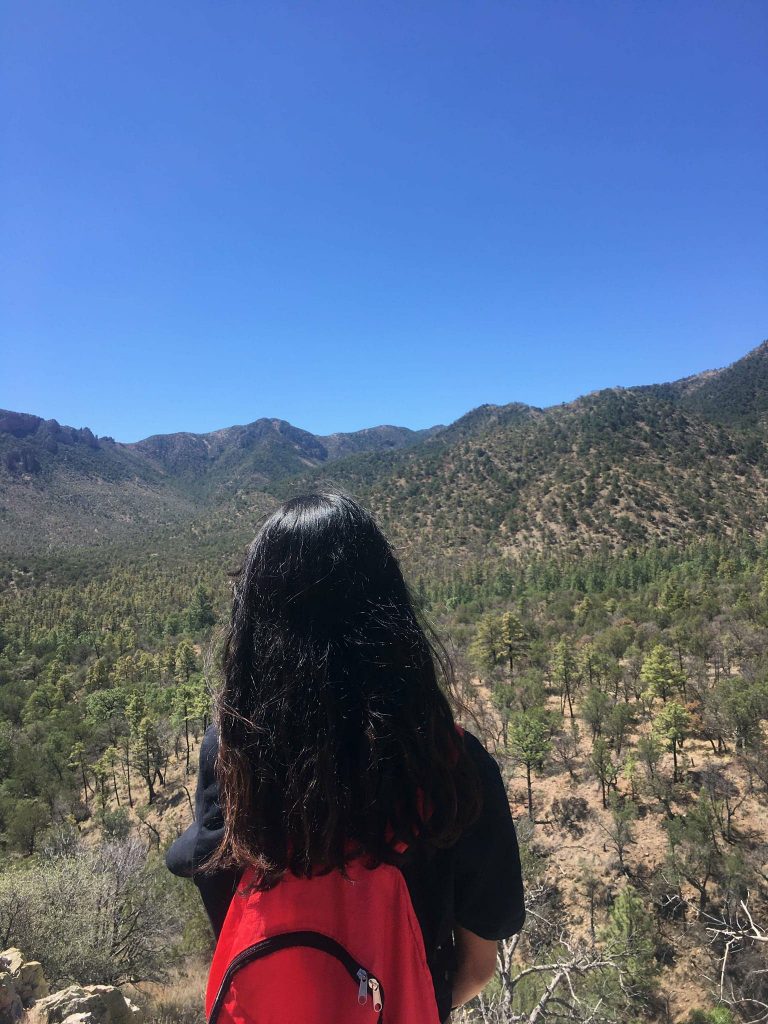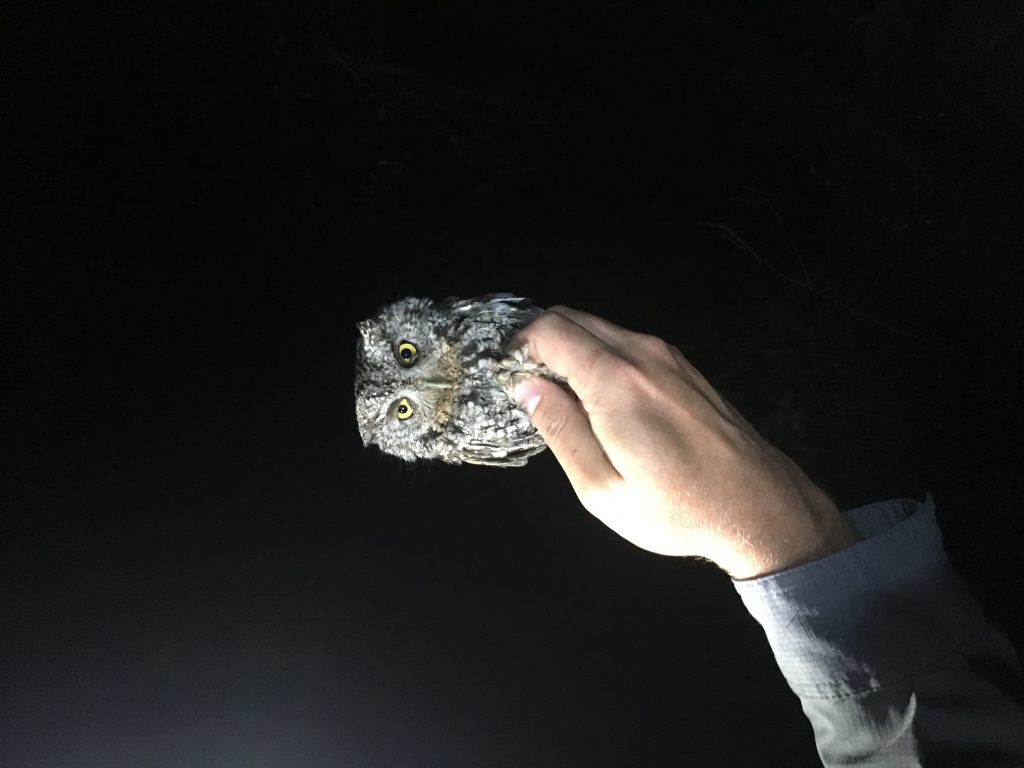
When catching an owl, one must not forget to keep the mist net taut. With a headlamp leading me through the dark, abyssal forest, this was all that was on my mind. I squinted down at the watch on my wrist. 11:50 P.M. Still no sign of the owl.
It was my last day at the two-week Earthwatch Institute Ignite research fellowship in the Southwestern Research Station of Portal, Arizona. I was one of the approximately 40 students out of 300 who earned acceptance into the all-expense paid expedition transporting me from Los Angeles to the Chiricahua Mountains. My research subject? The effects of climate change on owls.
Boop. Boop. Boop. As the lead scientist played each owl call during those first days, I grew excited at the prospect of our night fieldwork where we would gather data to determine how the tree cavities diminished as a result of climate change or how the fluctuating food availability affected their reproductivity. As a child, I would only read animal fact books or National Geographic Magazines because I was captivated by what was around me and the unknown. Gaps are waiting to be filled by researchers, and that electrified me. Up there in the Chiricahua Mountains, I was that researcher.
My first week consisted of collecting tree samples and adapting to the use of scientific tools with peculiar names such as densiometers, keyhole prisms, and malaise traps. During the day, I would wipe my forehead under the hundred-degree weather as I laid plots to analyze tree, canopy, and cavity density, and during the night, I would stare into the star-littered sky as I caught owls using mist nets and recordings of their own calls.
On slow nights where owl resisted our attempts, we’d lay on the ground without care of critters crawling around us. Unlike the skies in Los Angeles, the mountains in Arizona offered a crystal clear view of the night sky. It was in those moments that I realized I had never seen the Little Dipper until I saw it straight above me. Paired with my first sighting of a shooting star, I began to see the sky in a whole new light.
At midnight, we finally caught the resilient Whiskered Screech Owl. They are named so due to the long, thin whiskers surrounding their face, and it was astonishing to see the whiskers like a fan around its face for what seemed like the first time. Entranced by its fluorescent yellow eyes, I took a moment to reflect on my progression. Before joining the expedition, I lacked confidence in my scientific skills and myself. Additionally, I had never been fully immersed in an experience with strangers. That changed significantly the second I became involved in this research.
If I ever had a question, I would ask. If I ever had an interesting thought, I would share it. If I ever had an opportunity to learn, I would volunteer. The scientists agreed that my leadership skills grew as I consistently assisted the team. I formed unbreakable bonds with these people who I shared midnight laughs with and who thought my constant owl related puns were owlsome. I held nothing back, and in doing so, I learned to not limit myself. I realized that I am my best self when I am confident, passionate, and loud. The owl in my palm told me this.
Dear Reader: This page may contain affiliate links which may earn a commission if you click through and make a purchase. Our independent journalism is not influenced by any advertiser or commercial initiative unless it is clearly marked as sponsored content. As travel products change, please be sure to reconfirm all details and stay up to date with current events to ensure a safe and successful trip.

